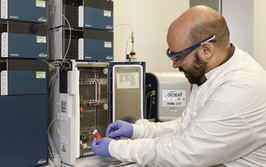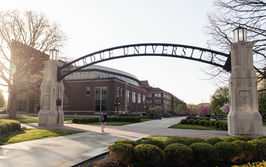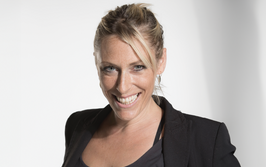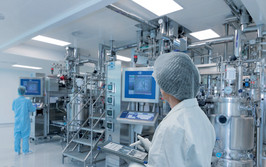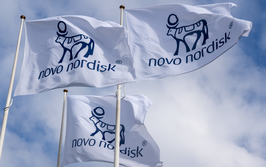Taking Vaccines Beyond Borders
Can yeast-based vaccines help overcome global vaccine inequity challenges?
Jamie Irvine | | 3 min read | Interview
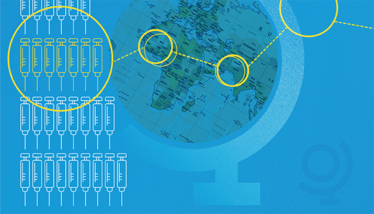
The emergence of COVID-19 not only illuminated the constrained resources in addressing pandemic threats, but also laid bare a more extensive vaccine disparity in low- to middle-income countries (LMIC). But given the costs associated with development and roll out, is global vaccine equity possible? Vaccine company Phenotypeca thinks so – and after receiving an endorsement from the Bill and Melinda Gates Foundation, they might just be onto something. The company is now working to formulate consistent high quality yeast-derived recombinant albumin – a key excipient used in vaccines. By improving access to recombinant albumin, we can, in theory, reduce the risks of vaccines while also lowering their price to affordable levels.
We were joined by Johnny Cordiner, CEO at Phenotypeca, to learn more.
What are the current challenges in global vaccine production?
Firstly, the widespread issue of vaccine costs poses a significant barrier to accessibility on a global scale. Secondly, the demand for vaccines surpasses the available supply, creating a challenge in ensuring widespread immunization. Additionally, cultural considerations contribute to the complexity of vaccine distribution, with certain regions facing resistance because of concerns related to the use of human or animal-derived materials in the manufacturing process.
Given the strict regulations and risks associated with human serum, sourcing a consistently high quality affordable recombinant alternative is a principal challenge. We believe that using animal-free recombinant albumin derived from baker’s yeast that can meet the requisite quality standard could be a potential, cost-effective solution. This not only addresses the difficulty in procuring human serum albumin, but it also presents an opportunity to transform the production profile of vital vaccines, such as those for measles and rubella.
For the uninitiated, what exactly is albumin?
Albumin is an unassuming, yet essential naturally occurring protein found in blood plasma; its role in the biotech and life science industries cannot not be overstated, especially in vaccine production. For those who are not aware, albumin’s primary duty in the human body is to regulate blood volume and pressure by maintaining oncotic pressure. It also serves as a crucial transporter for hormones, vitamins, and metal ions.
In vaccine production, albumin can be described as a stabilizer for active ingredients. Its role ensures that vaccine components retain their structural integrity and functionality during storage, transport, and administration. By stabilizing these components, albumin helps maintain the vaccine’s efficacy over time.
Tell us about your Quantitative Trait Loci (QTL) technology…
QTL technology combines our proprietary breeding methods for yeast with genomic based screening to optimize strains for a given protein (and the requirements of its market). The multi-parameter optimization specifically targets variations of critical locations in the genome that functionally drive key aspects of protein manufacture. By generating the optimal strain for a given protein and manufacturing process, QTL could improve net titer, increase output (without requiring an increase in facility size), and reduce cost of goods.
The technology could also be used to drive down the price of other key medicines. For example, the technology is also being deployed to create biosimilars of certain key biological therapeutics.
Finally, is global vaccine equity possible?
Global vaccine equity is not only possible, but should be standard. By engaging in international collaborations, we want to develop and transfer production strains to LMIC manufacturers that are optimized for local production, so that vaccines can be made where they are needed. By reducing costs by moving away from human albumin and embracing animal-free yeast expression systems, we can move one step closer to global vaccine equity.
Associate Editor, The Medicine Maker

